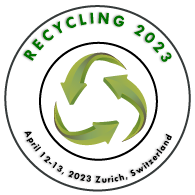PLASTICS RECYCLING: CHALLENGES AND OPPORTUNITIES
Plastics are low-cost, lightweight, and long-lasting materials that may be easily moulded into a variety of objects for a wide range of purposes. As a result, over the previous 60 years, the output of plastics has expanded dramatically. However, present levels of use and disposal result in a slew of environmental issues. Around 4% of global oil and gas production, a non-renewable resource, is utilised as feedstock for plastics, with another 3–4% needed to provide energy for their production.
Plastic is used to make disposable packaging and other short-lived products that are discarded within a year of creation.
One of the most essential measures currently accessible to mitigate these impacts is recycling, which is also one of the most dynamic areas in the plastics business. Recycling reduces oil consumption, carbon dioxide emissions, and the amount of waste that must be disposed of. In this section, we briefly compare recycling to other waste-reduction measures, such as downgauging or product reuse, the use of alternative biodegradable materials, and energy recovery as a fuel.
Advances in technologies and systems for collecting, sorting, and reprocessing recyclable plastics are opening up new recycling opportunities, and it may be possible to redirect the majority of plastic trash from landfills to recycling over time if the public, industry, and governments work together.
Related Conference of PLASTICS RECYCLING: CHALLENGES AND OPPORTUNITIES
PLASTICS RECYCLING: CHALLENGES AND OPPORTUNITIES Conference Speakers
Recommended Sessions
- ADVANCED RECYCLING: PHYSICAL & CHEMICAL
- BIO- ELECTROCHEMICAL TREATMENT SYSTEM
- BIO-PLASTICS
- BIOREMEDIATION
- CHALLENGES IN COLLECTION & SEGREGATION OF PLASTICS WASTE
- CHEMICAL WASTE RECYCLING
- CIRCULAR ECONOMY FOR ELECTRIC VEHICLES (EV) BATTERIES
- CIRCULAR PLASTICS FOR PACKAGING
- E-WASTE
- FOOD AND AGRICULTURAL WASTE RECYCLING
- INDUSTRIAL WASTE RECYCLING
- METAL RECYCLING
- PAPER RECYCLING
- PLASTICS RECYCLING: CHALLENGES AND OPPORTUNITIES
- SOLID WASTE MANAGEMENT
- TECHNOLOGY & INNOVATION IN PLASTICS RECYCLING
- THERMAL WASTE RECOVERY
- WASTE RECYCLING AND MANAGEMENT
- WASTE WATER TREATMENT

